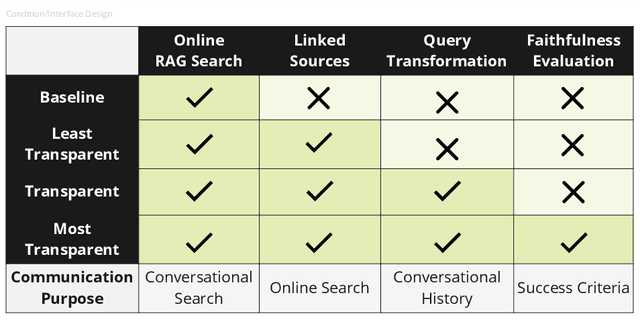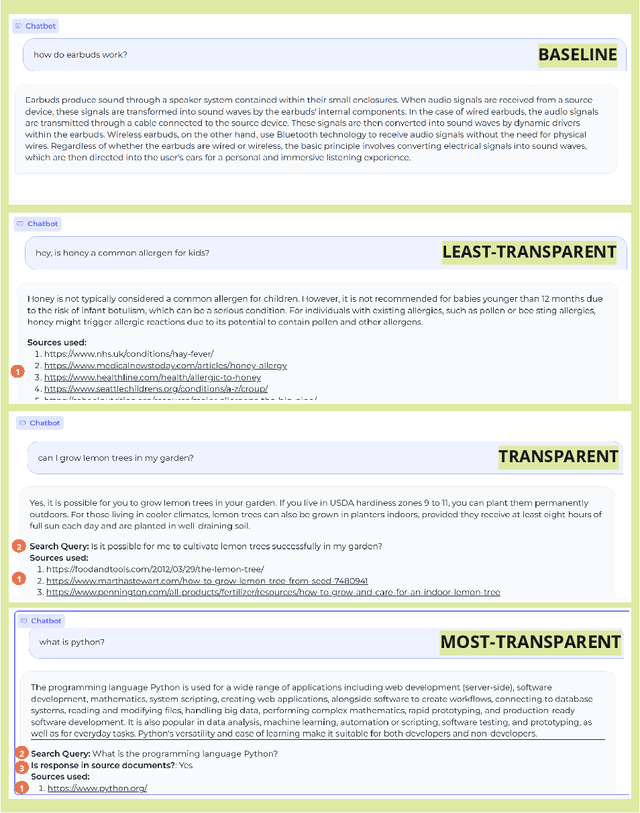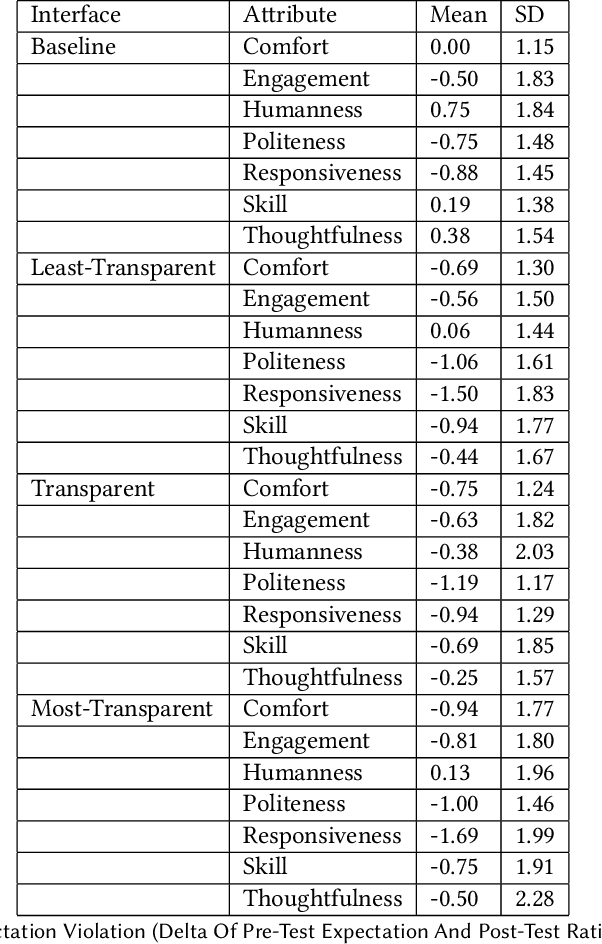Chadha Degachi
Understanding Mental Models of Generative Conversational Search and The Effect of Interface Transparency
Jun 04, 2025



Abstract:The experience and adoption of conversational search is tied to the accuracy and completeness of users' mental models -- their internal frameworks for understanding and predicting system behaviour. Thus, understanding these models can reveal areas for design interventions. Transparency is one such intervention which can improve system interpretability and enable mental model alignment. While past research has explored mental models of search engines, those of generative conversational search remain underexplored, even while the popularity of these systems soars. To address this, we conducted a study with 16 participants, who performed 4 search tasks using 4 conversational interfaces of varying transparency levels. Our analysis revealed that most user mental models were too abstract to support users in explaining individual search instances. These results suggest that 1) mental models may pose a barrier to appropriate trust in conversational search, and 2) hybrid web-conversational search is a promising novel direction for future search interface design.
A Systematic Review on Fostering Appropriate Trust in Human-AI Interaction
Nov 08, 2023



Abstract:Appropriate Trust in Artificial Intelligence (AI) systems has rapidly become an important area of focus for both researchers and practitioners. Various approaches have been used to achieve it, such as confidence scores, explanations, trustworthiness cues, or uncertainty communication. However, a comprehensive understanding of the field is lacking due to the diversity of perspectives arising from various backgrounds that influence it and the lack of a single definition for appropriate trust. To investigate this topic, this paper presents a systematic review to identify current practices in building appropriate trust, different ways to measure it, types of tasks used, and potential challenges associated with it. We also propose a Belief, Intentions, and Actions (BIA) mapping to study commonalities and differences in the concepts related to appropriate trust by (a) describing the existing disagreements on defining appropriate trust, and (b) providing an overview of the concepts and definitions related to appropriate trust in AI from the existing literature. Finally, the challenges identified in studying appropriate trust are discussed, and observations are summarized as current trends, potential gaps, and research opportunities for future work. Overall, the paper provides insights into the complex concept of appropriate trust in human-AI interaction and presents research opportunities to advance our understanding on this topic.
 Add to Chrome
Add to Chrome Add to Firefox
Add to Firefox Add to Edge
Add to Edge